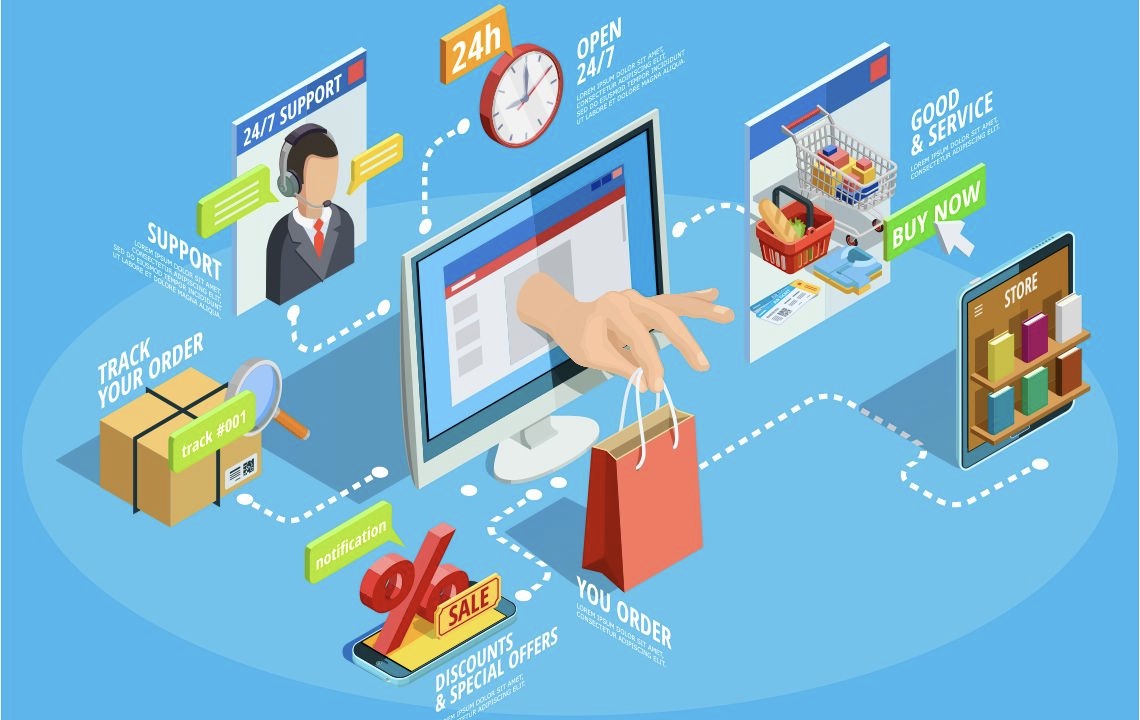
Welcome to the exciting world of e-commerce website development! In this fast-paced digital era, businesses are constantly striving to stay ahead of the curve and provide seamless online shopping experiences for their customers. As we approach 2023, it’s important to take a closer look at the trends shaping the industry and what we can expect in the coming years. From the rise of popular platforms like Shopify to emerging players making their mark, there’s plenty in store for e-commerce enthusiasts. So, buckle up and get ready as we dive into the fascinating realm of e-commerce website development trends that will dominate 2023 and beyond!
The Rise of Shopify
Shopify has undeniably emerged as a powerhouse in the world of e-commerce website development. With its user-friendly interface, robust features, and extensive customization options, it’s no wonder that businesses of all sizes are flocking to this platform. Shopify caters to both beginners and experienced entrepreneurs alike, offering a seamless experience for setting up online stores.
One key factor contributing to Shopify’s rise is its focus on mobile responsiveness. In today’s smartphone-dominated society, having a mobile-friendly website is crucial for success.
With its intuitive interface, mobile responsiveness, versatile themes, and powerful integrations – it’s evident why Shopify has become the go-to choice for many aspiring entrepreneurs in the realm of e-commerce website development.
The Decline of WooCommerce
WooCommerce, once the go-to platform for e-commerce website development, is now facing some challenges as newer players enter the game. While it remains a popular choice for many online businesses, its dominance in the market is starting to wane.
One of the main reasons behind this decline is the rise of Shopify. With its user-friendly interface and extensive range of features, Shopify has quickly become a preferred choice for entrepreneurs looking to set up their online stores. Its seamless integration with various payment gateways and shipping providers makes it an attractive option for both small start-ups and established brands.
As more entrepreneurs look towards simplified solutions that require minimal setup time but provide maximum efficiency in terms of performance and scalability, we may continue witnessing the gradual decline of WooCommerce in favour of more user-friendly e-commerce platforms.
The Growth of BigCommerce
One of the key advantages that set BigCommerce apart is its scalability. Whether you’re just starting or have an established business with high traffic volumes, this platform can handle it all. It offers a variety of customizable templates and themes that allow you to create a unique and visually appealing storefront.
In addition to these features, BigCommerce provides excellent customer support through multiple channels such as live chat and phone support. Their knowledgeable team is always ready to assist you with any technical issues or questions you may have along the way.
Choosing the Right E-commerce Development Company
Choosing the right e-commerce development company is a crucial decision that can greatly impact the success of your online business. Here are some key factors to consider when selecting an e-commerce software development company:
- Experience and Expertise: Look for a company that has a solid track record in e-commerce software development. Check their portfolio and client testimonials to assess their expertise in building robust and scalable e-commerce solutions.
- Customization and Scalability: Determine if the company can build a custom e-commerce solution tailored to your specific business requirements. Your e-commerce platform should be scalable to accommodate your future growth and able to integrate with third-party services and APIs.
- Technology Stack: Evaluate the technology stack used by the company. Ensure that they work with modern and reliable frameworks, programming languages, and databases. The chosen technology should align with your project’s needs and provide a stable foundation for your e-commerce platform.
- Mobile-Friendly Approach: Mobile commerce is on the rise, so it’s crucial to have a mobile-friendly e-commerce platform. Check if the company specializes in responsive web design and mobile app development to ensure a seamless user experience across various devices.
What to Expect in 2023
Personalization will continue to be a driving force behind successful e-commerce websites. Customers have come to expect tailored experiences that cater specifically to their needs and preferences. In 2023, we can expect even more advanced technologies and strategies aimed at delivering personalized content, product recommendations, and marketing messages.
Mobile commerce will reach new heights. With the increasing prevalence of smartphones and tablets, consumers are increasingly turning to their mobile devices for online shopping. E-commerce websites must be optimized for mobile viewing and offer seamless user experiences across all devices if they want to capture this growing market segment.
Another trend we can expect is the integration of artificial intelligence (AI) into e-commerce websites. AI-powered chatbots have already become commonplace in customer service interactions, but in 2023 we may see further advancements where AI plays a role in inventory management, pricing optimization, and predictive analytics.
Furthermore, social commerce will continue its rise as social media platforms increasingly integrate shopping features directly into their interfaces. This shift allows businesses not only to showcase products but also enables users to make purchases without leaving their favourite social platforms.
Conclusion
As we look ahead to 2023, the trends in e-commerce website development are clear. The rise of Shopify has solidified its position, offering ease of use and a wide range of features. On the other hand, WooCommerce seems to be experiencing a decline, perhaps due to its complexity and limited scalability.
As technology advances and consumer expectations change, businesses must stay up-to-date with these trends to remain competitive in an ever-growing digital landscape. Whether you choose Shopify or BigCommerce or explore other options altogether – adapting your online store strategy is crucial for success in 2023 and beyond.
So, don’t get left behind! Embrace these trends, stay agile, and watch your e-commerce business thrive in this exciting era of online commerce.
Interesting Related Article: “BigCommerce Customization: What are the Options?“
